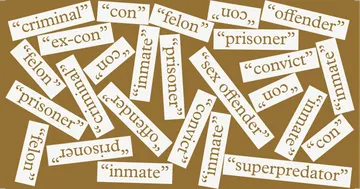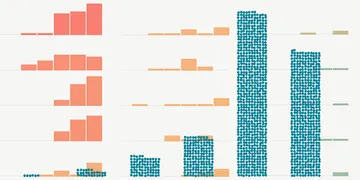This is The Marshall Project’s Closing Argument newsletter, a weekly deep dive into a key criminal justice issue. Want this delivered to your inbox? Sign up for future newsletters.
As the Supreme Court wrapped up a spate of rulings at the end of its term, Justice Sonia Sotomayor didn’t mince words. Following a decision that voided the kind of universal, nationwide injunctions that had obstructed the Trump administration’s path to revoking birthright citizenship, Sotomayor read aloud from her dissenting opinion from the bench on June 27: “No right is safe in the new legal regime the Court creates.”
Sotomayor’s dissent wasn’t exclusively about birthright citizenship — a question the court has sidestepped for now. Instead, it emphasized how the decision stands to weaken one of the judiciary’s most powerful tools for curbing executive power: universal injunctions.
This legal mechanism, which allows judges to temporarily block a law or policy nationwide, has been deployed frequently by lower courts throughout the first five months of the new administration, including in challenges to its immigration and deportation-related executive orders. To the court’s critics, taking universal injunctions away from federal courts undermines the judiciary’s independence and its essential role in acting as a check on the other two branches of government. Sotomayor said she refused “to be complicit in so grave an attack on our system of law.”
The decision capped off a term marked by the Trump administration’s repeated emergency appeals to the Supreme Court. As law professor and author Stephen Vladek noted, in the first 20 weeks of the second Trump administration, the federal government filed as many requests for emergency relief as the Biden administration had filed in four years.
The requests called on the justices to aid the administration after lower courts blocked many executive orders, and the court overwhelmingly ruled in the administration’s favor, issuing a series of expedited decisions. The court allowed the administration to terminate the temporary protected immigration status of more than 500,000 people, deport immigrants to “third party” countries to which they have no connection, and use the Alien Enemies Act of 1798 to deport noncitizens, just to name a few.
Beyond these headline-grabbing decisions, the justices ruled on more than a dozen criminal justice-related cases. These decisions, according to law professor Douglas Berman, were more narrow in scope and impact than the immigration-related rulings. And in contrast to the many decisions this term that favored the government, several noteworthy criminal justice-related rulings sided with litigants who have been harmed by the criminal justice system, some of whom are incarcerated.
Esteras v. United States
The court examined the factors that judges can weigh when deciding how to punish someone who violates the terms of their supervised release. Writing for the majority, Justice Amy Coney Barrett said that courts should focus on the future — deterring crime, protecting the public, and rehabilitating people — rather than punishing them again for the original offense. The ruling, decided 7-2, could influence sentencing in thousands of cases involving parole violations every year. Some legal experts disagree, however, suggesting the ruling will just tinker around the margins, possibly influencing the language used by sentencing courts, but not requiring leniency in practice.
Hewitt v. United States
The justices also considered the First Step Act, passed during the first Trump administration, and concluded that prisoners can benefit from the law during resentencing even if they were originally sentenced before it was passed in 2018. The narrow 5-4 opinion came alongside a dissent led by Justice Samuel Alito, who called the majority’s “atextual” interpretation the result of “a thinly veiled desire to march in the parade of sentencing reform. But our role is to interpret the statute before us, not overhaul criminal sentencing.”
Gutierrez v. Saenz
The court sided with Ruben Gutierrez, who is on death row in Texas, in his quest to challenge a state law governing DNA testing. Texas law says a defendant can be found guilty of capital murder, but not receive a death sentence, if they were party to a crime resulting in death. Gutierrez argues that a DNA test would prove that although he was present during a robbery that resulted in a murder, he didn’t have a hand in the victim’s death, and should therefore be spared from execution. He can now challenge the state’s testing law, which currently only permits DNA testing if it could impact someone’s conviction, not their sentence.
Perttu v. Richards
In a 5-4 vote, the justices also expanded the rights of incarcerated people to have their cases heard by juries. The case was brought by a Michigan man who said he was sexually abused by a prison employee, then prevented from filing grievances about the misconduct. Exhausting all available steps within a prison’s grievance system is a prerequisite to being able to file a civil rights lawsuit under the Prison Litigation Reform Act, making access to that system crucial. The court’s ruling means that a jury — not just a judge — can decide whether someone has truly exhausted that process and therefore whether they’re allowed to sue.
Martin v. United States
The Supreme Court sided with victims of a 2017 botched FBI raid in Georgia. In a unanimous ruling, the court revived the lawsuit filed after agents barged into the wrong house with a battering ram, set off a flash-bang grenade and handcuffed one of the homeowners. Lower courts had sided with the government, tossing out the homeowners’ case on the grounds that their claims were excluded from the Federal Tort Claims Act, but the high court’s ruling offers a chance for the couple to seek justice again.
Parrish v. United States
The court also revived a lawsuit brought by Donte Parrish, an incarcerated man in West Virginia who said he was wrongfully held in solitary confinement for two years. A lower court had dismissed his case seeking compensation after he missed a deadline to file notice of appeal. “This ruling is important not only for Mr. Parrish, but also for other incarcerated pro se litigants facing mail delays and other obstacles in attempting to litigate their cases from behind bars,” Parris’ attorney Amanda Rice said in a statement.
Glossip v. Oklahoma
In the long-embattled case of Richard Glossip, who was on Oklahoma’s death row for nearly 30 years, the court found that Glossip’s due process rights were violated and granted him a new trial, overturning a ruling from the Oklahoma Court of Criminal Appeals. The state’s attorney general has since announced plans to try Glossip for first-degree murder for a third time — but will no longer seek the death penalty.
While a handful of this term’s rulings expanded rights for people affected by the criminal justice system, many others sided with the government. The justices rejected Texas prisoner Danny Rivers’ request to introduce new evidence in his case, heeding a lower court’s argument that his appeal violated procedural requirements. In Delligatti v. U.S., the court dissected the definition of a “crime of violence” in the context of a botched mob hit, concluding that although the hit wasn’t carried out, providing a loaded gun for the job still constituted use of force.

